What is Earth Science
Earth Science is one of the science disciplines that have Earth as its focus of study. Earth Science deals with geography, geology, palaeontology, seismology, and many other subjects. The focus might be on earth and its innumerable contents and processes but also includes the neighbours of the Earth and the nearby cosmos. The discipline is like a combination of geography, chemistry, environmental science and geology. It is packed with knowledge that is useful as a geologist, miner, mineralogist, marine geologist, seismologist, oceanographer, environmentalist, palaeontology and a lecturer. In India, there are a number of Earth Science courses available at the undergraduate, post-graduate and even doctoral levels. With the growing risks of environmental and earth-related issues such as global warming, pollution, earthquakes and floods, the prospects of Earth Science as a discipline has increased a lot. Other than that, mining companies, meteorological departments, disaster management departments, oil and natural gas companies, and many such private companies hire graduates of Earth Sciences, thus doubling its prospects by two-fold.
Earth Science Course Highlights
Parameters | Undergraduate Level | Post-graduate Level | Doctoral Program |
Common Courses on Earth Sciences | B.Sc. in Earth Sciences B.Tech. in Earth Sciences | M.Sc. in Earth Sciences MTech. in Earth Sciences | PhD in Earth Sciences |
Minimum Duration | 3 Years | 2 Years | 3 Years |
Maximum Duration | 4 Years | 2 Years | 5 Years |
Eligibility Criteria for Admission | Must have passed XII level with at least 50 percent marks | Must have graduated with at least 55 percent aggregate marks | Minimum 55 percent required in post-graduation level in the related discipline |
Minimum Fees | Rs. 8,000 | Rs. 12,000 | Rs. 20,000 |
Maximum Fees | Rs. 1,70,000 | Rs. 2,00,000 | Rs. 2,20,000 |
Minimum Salary | Rs. 15,000 p.a. | Rs. 20,000 p.a. | Rs. 25,000 p.a. |
Maximum Salary | No upper bound limit for salary | No upper bound limit for salary | No upper bound limit for salary |
Career Choices | Geologist, Supervisor, Palaeontologist, Hydrogeologist, Environmentalist | Marine Geologist, Petroleum Geologist, Hydrogeologist, Mine Supervisor, Lecturer, Environmentalist | Professor, Researcher, Seismologist, Marine Geologist, Petroleum Geologist, Environmentalist, Hydrogeologist, Mine Supervisor |
Eligibility Criteria (UG & PG) of Earth Science
Apart from the requirement of appearing for entrance exams conducted by various colleges/ institutes, students are also required to fulfil certain eligibility criteria to apply for Earth Sciences courses in various colleges and institutes across India.
Eligibility Criteria for UG Courses:
- Students applying for Earth Sciences in UG course (B.Sc./ B.Tech.) must have completed 10+2 level with not less than 50 percent in science stream from a recognised board in India.
- Students may also have to take entrance examinations such as JEE MAIN, as instructed by the respective college/Institute.
Eligibility Criteria for PG Courses:
- Students applying for M.Sc./ M.Tech courses in Earth Sciences must have passed UG level exam in the related field with not less than 55 percent from a recognised college/ university in India.
- Students may have to appear for entrance exams like GATE.
Eligibility for Doctoral Program:
- Students applying for PhD in Earth Sciences and any specialisation with the subject must score at least 55 percent in PG level exam in the related subject.
- Students may also have to sit for entrance exams conducted by respective institutes and universities.
Popular Engineering Colleges in India
Earth Sciences Entrance Examination
Entrance examinations are held by institutions offering courses related to Earth Sciences across India. These entrance exams are conducted to test the skills and knowledge of students with respect to the course. In order to sit for these entrance exams, students must have at least 45-55 percent in the qualifying exam (10+2 or graduation exam or PG exam). Some of the most common Earth Sciences entrance tests are –
1. Joint Entrance Examination Main (JEE Main): JEE Main is the biggest national level exam conducted for various engineering courses at UG level across India. The score of this entrance test is accepted in all IITs, NITs, and CFTIs. Many IITs offer B.Sc./ M.Sc. in Earth Science.
2. Graduate Aptitude Test in Engineering (GATE): GATE is the most important exam for engineering students seeking admission in PG courses offered by India’s best colleges. Every year as many as 8 – 10 Lakh students sit for the exam.
3. Indian Institute of Remote Sensing (IIRS) Entrance Test: Indian Institute of Remote Sensing is one of the top institutes offering M.Sc. courses in Earth Science and related subjects.
4. Manipal Entrance Test (MET): This is conducted by the Manipal University for students seeking admission into the Manipal Institute of Technology. This is written for various B.Tech. and M.Tech. courses, including Earth Science.
5. Indian Institute of Science Education & Research (IISER), Bhopal Aptitude Test: IISER Bhopal is one of the most reputed institutes in India. It conducts IISER Aptitude test for taking students in various B.Sc., and M.Sc. courses include Earth Sciences.
College Predictors VIEW ALL
Scope of Earth Science in India and Abroad
Earth Sciences is an interdisciplinary subject including topics from geography, geology, environmental science, and even chemistry. The subject, therefore, offers specialisation in many fields. This broadens the prospects of an Earth Sciences course. If one is studying B.Sc. in Earth Science, one can opt for M.Sc. in Seismology and get recruited in Meteorological Departments of India. The course also covers topics like minerals, rocks, natural gas, and fuels which are the cores of the Energy Sector of India and are thus, in high demand. Recruitments for supervisors of mines and industries, hydrogeologists and petroleum geologists for various oil and gas companies – private and public – are increasing as the demands of natural resources are getting higher day by day. The overall scope of the subject is very wide, and students will not only have great career opportunities, but will also learn a great deal about our one and only abode – the Earth – which will never lose its relevance whatsoever.
Course Fees Earth Science
| Minimum Fees | Maximum Fees | |||
|---|---|---|---|---|
| Private | Government | Private | Government | |
| UG | ||||
| PG | ||||
| DOCTORAL | ||||
| DIPLOMA | ||||
Course Subjects
- Geology
- Geochemistry
- Palaeontology
- Ore Geology
- Geomorphology
- Geotechnical Engineering
- Sedimentology
- Seismology
- Marine Geology
- Economic Geology
- Drilling Engineering
- Environmental Studies
- Hydrogeology
- Geo-Mechanics
- Statistical Methods of Geosciences
Careers in Earth Science
Earth Sciences is a very relevant and broad discipline covering topics from geography, geology, meteorology, environmental studies, chemistry, physics, astronomy, petroleum geology, mineralogy, hydrogeology and geo science offering many specialisations for further research and for career opportunities as well. Career options available include mining engineer, seismologist, petroleum engineer, marine geologist, geo scientist, geo science engineer, survey geologist, hydrogeologist, environmentalist and even a lecturer.
Upcoming trends
With improvements in technology, new methods of research in Earth Sciences have been incorporated. As demands of natural resources are increasing and the depletion of the resources are on the rise, a lot of importance has been given to certain sub-fields. These include –
· Marine geology
· Petroleum geology
· Meteorology
· Mineralogy
· New Renewable Energy Sources
A lot of recent research has been organised for evolution of Earth dinosaurs, and even humans in order to have a better understanding of Earth’s past and potent risks for the future. Environmental issues like global warming, pollution, air quality, and water conservation have also found its place in the curriculum.
Browse earth science certification courses
| Earth System Science | Geomorphic Processes: Landforms and Landscapes |
| Natural Hazards | Sustainable Energy |
Students also liked
Job Profiles and Top Recruiters
Job Profiles
Being a course that involves several subjects, finding a job that is tailored to the interests is not hard. A graduate of Earth Sciences can branch out into a number of fields and thus has innumerable job opportunities available to him. Listed below are some of the most coveted jobs in the field -
S.No. | Job Profile | Job Description |
1. | As a seismologist, one has to work in collecting and interpreting seismic data for meteorological departments and various oil and mining companies. | |
2. | As a mining engineer, one has to work in mining companies for safe extraction of minerals, oils, and other resources. | |
3. | Survey Geologist | As a survey geologist, one has to conduct geological surveys and collect data on behalf of the state and central government. |
4. | Hydrogeologist | As a hydrogeologist, one will have to analyse and interpret data on water systems and build a more efficient groundwater model. |
5. | Geo-Science Engineer | As a geoscience engineer, one has to conduct searches for natural resources, study processes and aspects of earth and conduct studies on them. |
Top Recruiters
There is a need for Earth Sciences graduates in almost every field today. With the rapid depletion of fossil fuels, such graduates with immense knowledge on the Earth are in high demand. Listed below are some of the highest paying recruiters for graduates of Earth Sciences.
1. Mineral Exploration Corporation Ltd.
2. Reliance Petroleum
3. Geological Survey of India
4. Indian Space Research Organization
5. Oil and Natural Gas Corporation
6. National Mineral Development Corporation
7. Environmental Consulting Firms
8. Engineering Firms
9. Academic Institutions
10. Research Centres
Average Salary
Most graduates of Earth Sciences are recruited into well-paying industries immediately after graduation. With experience, the pay in such fields only goes higher. Therefore, one could say that navigating through the strenuous course of Earth Sciences does have its perks after graduation. Listed below are some of the job titles with the approximate salaries they receive -
S.No. | Job Profile | Salary Per Annum |
Petroleum Geologist | Rs. 2,40,000 – Rs. 8,50,000 | |
Seismologist | Rs. 2,00,000 – Rs. 8,00,000 | |
Lecturer | Rs. 3,00,000 – Rs. 7,20,000 | |
Geo-Science Engineer | Rs. 2,50,000 – Rs. 8,60,000 | |
Mining Engineer | Rs. 2,64,000 – Rs. 8,50,000 |
**The salary figures mentioned anywhere in this article is just for reference purposes. Please treat them as such. Actual salaries may vary depending on respective candidates, employer, job location and numerous other factors.
Required Skillset for Earth Science
To excel in the field of Earth Sciences, a keen interest of the subject and its various faucets is the only way. With hard work and dedication, success in the field is certain. Apart from this, in order to successfully navigate through the curriculum of the course and perform their best in careers of the course, listed below are some skills that can easily be picked up along the way -
- Knowledge relating to Science and The Earth: Students must have a great deal of knowledge about geography and the Earth with a good application of science, especially in the chemistry of everyday processes of the Earth. This will definitely be a plus point.
- Practical Skills: Students must have great lab skills to excel in experiments and any other practical work. Practical skills will be especially useful for conducting on-site research like in mining, hydrogeology, and other work.
- Research Oriented: Students must be research-oriented to find solutions to unsolved problems and conduct new research to prove points and inferences.
- Statistical Mind: Statistical skills to draw and analyse large numerical data and graphs and deduce conclusions from them is an especially important asset for Earth Sciences students.
- Computer Skills: Students must know how to operate computer programs such as GIS and Remote Sensing.
- Communication Skills: Verbal skills of students will help them in clearing viva, interviews, or discussing any problem in detail.
Course Curriculum for Earth Science
Earth Sciences is interdisciplinary, and therefore, its curriculum consists of topics from subjects such as geology, chemistry, geography, environmental science. The focus of the study is Earth and its various aspects like the atmosphere and processes such as the formation of fuels, global warming and earthquakes.
Browse Engineering Colleges by Cities Accepting JEE Main
Popular Earth Science Entrance Exams in India
GATE
Exam Date: 07 Feb, 2026 - 08 Feb, 2026
JEE Advanced
Application Process: 06 Apr, 2026 - 02 May, 2026
NEST
Application Process: 05 Jan, 2026 - 06 Apr, 2026
GRE
Exam Date: 20 Apr, 2026
Frequently Asked Questions (FAQs)
Question: Can a third-year student from B.Tech. appear for GATE?
Answer :
No, a third-year B.Tech. student cannot appear for GATE as the student is not enrolled in his final year.
Question: What are the two new subjects added in GATE?
Answer :
Environmental Science and Engineering (ES) and Humanities and Social Science (XH) have been added to GATE increasing the total number from 25 to 27 subjects.
Question: What is the age limit for GATE?
Answer :
There is no such age limit, except that the candidate must have passed the higher senior secondary exam and should be currently in the final year or have completed his/ her undergraduate program with not less than 55 percent aggregate.
Question: Who is conducting JEE Main this year and when?
Answer :
JEE Main is conducted by the National Testing Agency this year. The date for examination for the April session has still not been announced due to COVID-19 situation.
Question: What are some of the top colleges offering Earth Science courses?
Answer :
Some of the top colleges for Earth Sciences are IIT Bombay, BITS Ranchi, Manipal Institute of Technology, Indian Institute of Science Education & Research, Indian Institute of Remote Sensing, Presidency College Chennai, Kalinga Institute of Technology, Fergusson College Pune and many others.
Questions related to Earth Science
can i get bsc earth science/geology in any college through josa if i got 111758 rank (OBC) in jee mains...!
Dear aspirant!
Hope you are doing well !
JEE MAINS is a national entrance exam for students those who want to apply for engineering . If you want to do BSC , then your only 12th marks is required , there is no entrance exam for Bsc . There is
which college i can get at 111758 rank (OBC) in jee mains for bsc earth science/ geology ?
Dear aspirant!
Hope you are doing well !
JEE mains is the entrance test uses to filter of students for B. Tech in various NITs and IIITs across India. If you clear JEE Mains you get to appear in JEE Advanced..
The top BSc entrance exams are CUET, NPAT, SUAT
Msc earth science colleges private
Dear Student ,
Here is the list of Top Earth Science colleges in India that offers M.Sc in Earth Science or related domain :
- Central University of Rajasthan, Ajmer
- NISER Bhubaneswar - National Institute of Science Education and Research
- Andhra University College of Science and Technology, Visakhapatnam
- Kuvempu University, Shankaraghatta
How I get sample paper with solution of earth science for Msc.
Hello aspirant,
You have not specified whether u want sample paper with solutions for admission test or course exams.
If it is for admission test then you need to sort the Universities/Colleges which take such tests, look for sample question paper/solution on their homepage directly.
Or, some sites provide sample
l did Msc in geography. Do l have to apply for ugc net geography or csir net earth science?
Hello aspirant,
As you did M.Sc. in Geography you will have to apply for ugc net geography. Earth science is a different subject. Those who are pursuing M.Sc. in Geology or Earth science can apply for csir net earth science.
Hope your doubt is cleared.






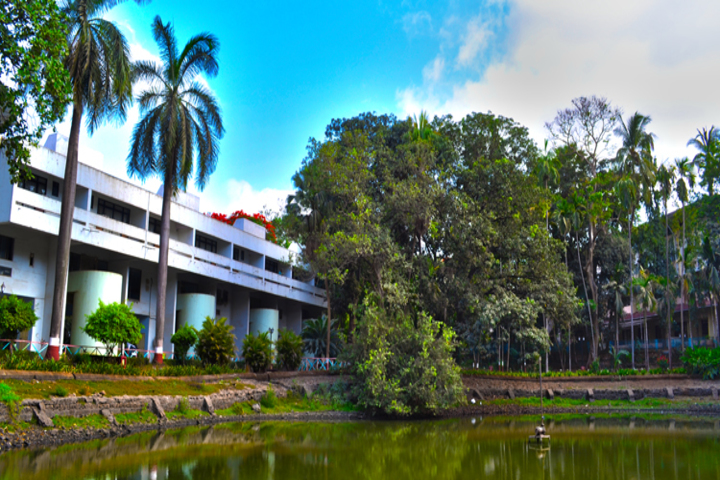

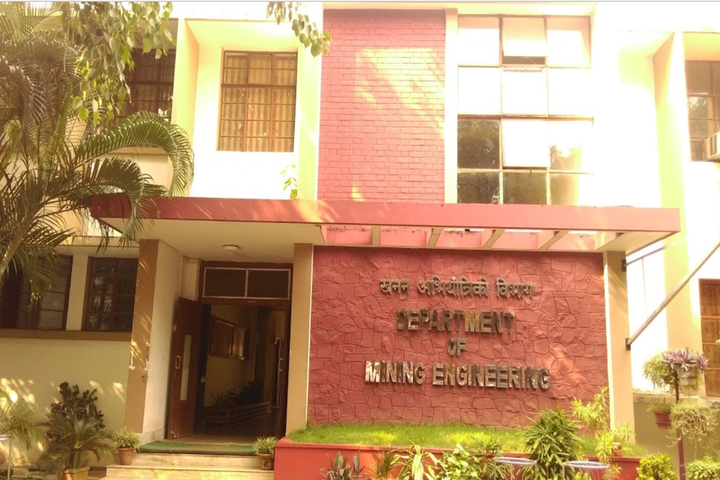
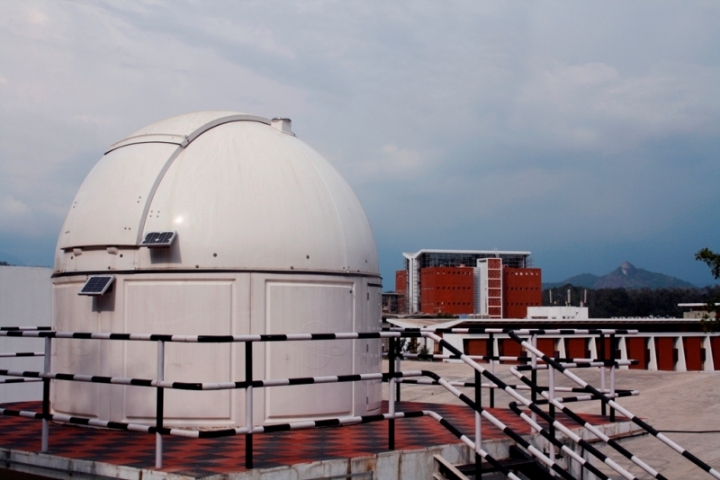
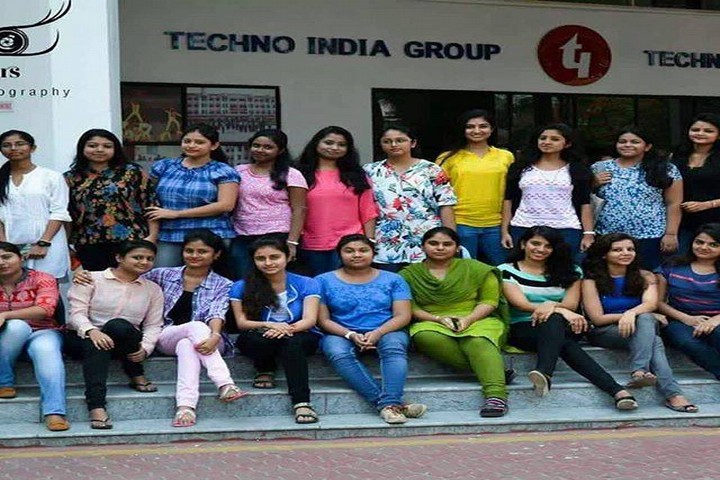
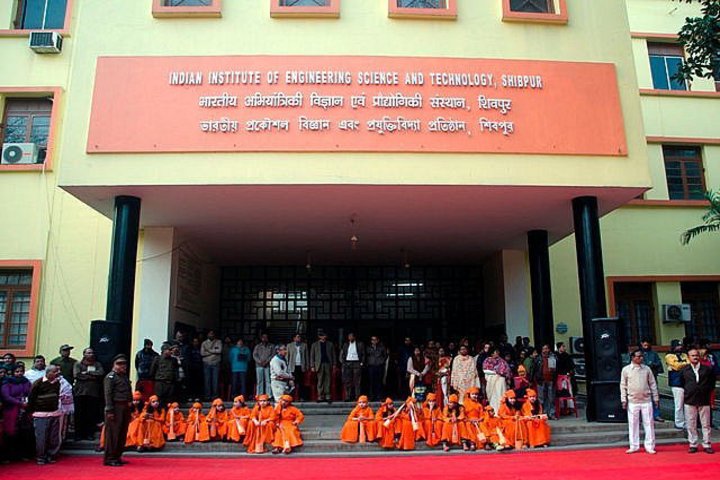
.JPG)

 Answer later
Answer later










